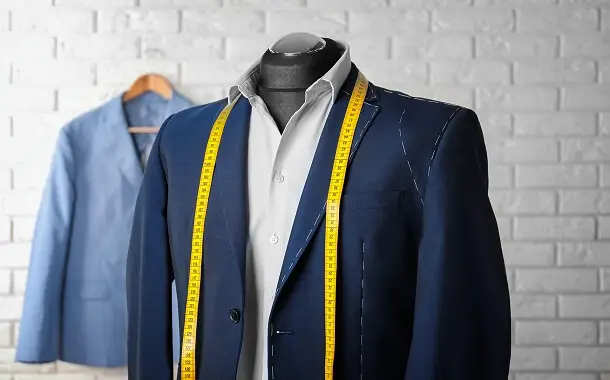How Much Does a Suit Cost?
Last Updated on January 3, 2024
Written by CPA Alec Pow | Content Reviewed by ![]() CFA Alexander Popinker
CFA Alexander Popinker
A well-tailored suit can make any man look sharp and professional. But suits come with a wide range of price tags these days. What exactly impacts the cost of a suit?
A high-quality, well-fitted suit is a wardrobe very important for many men. But walk into any haberdashery or department store, and you’ll see suit prices that range drastically from $200 to $5,000 and up. This leaves many wondering – what makes suits so expensive, and what are you paying for in a higher-priced garment?
In this comprehensive guide, we break down the costs behind different suit styles and prices. You’ll learn what goes into an inexpensive, mid-range, or high-end suit, and how elements like fabrics, construction technique, and custom tailoring impact the overall price and value of a suit.
Key Suit Cost Takeaways:
- Inexpensive suits range around $200-$400, mid-range $400-$1,000, premium $1,000-$3,500+, bespoke $3,500+.
- Fine fabrics made from delicate wools or cashmere increase suit prices.
- Better construction via hand-tailoring and canvasing adds labor costs.
- Custom tailoring and made-to-measure suits are priced higher than off-the-rack.
- Renowned designer brands fetch higher prices than unknown labels.
- Focus on quality craftsmanship over brand names alone when judging value.
How Much Does a Suit Cost?
The cost of a new suit is anywhere between $200 and $3,500 or more, depending on who made it, the materials it is made from, your location, and some other factors we’ll talk about in the sections that follow.
Suit prices can vary wildly, but on average:
- Inexpensive suits typically come at an average cost of $200 to $400. These are often fused suits made with lower-end fabrics.
- Mid-range suits span around $400 up to $1,000. Here you get better wool fabrics and a half-canvassed construction.
- Premium suits range from $1,000 up to $3,500+. These use fine fabrics and quality craftsmanship like full-canvasing.
- Bespoke suits start around $3,500+, with the sky as the limit. Made fully custom-tailored to your body.
So when it comes to cheap suits, Suits Outlets, for example, offers discount suits on sale at a price range of $100 – $200, with free shipping and a 30-Day return policy.
USA Today also provides information on various places to buy basic suits, with prices starting at $224 for inexpensive, quality suits.
SuitShop offers good suits and tuxedos for men, women, nonbinary, and kids starting under $200, with free fast shipping, returns, and exchanges.
On the expensive side of suit acquisition, MrPingLife.com lists some of the most expensive suits in the world, including the Richard Jewels Diamond Edition suit priced at $900,000, the Stuart Hughes Diamond Edition suit at $778,290, and the William Westmancott Ultimate Bespoke suit at $75,000.
Luxhabitat.ae provides information on the Stuart Hughes Diamond Edition suit priced at $778,290, as well as other expensive suits worn by celebrities and wealthy individuals.
Of course, prices still depend on the brand, materials, and construction methods used. But this gives a rough idea of average pricing for different tiers of quality of a suit. An expensive suit isn’t always higher quality, but a higher quality suit will almost always be more expensive.
What Impacts the Cost of a Suit?
Several key factors influence a suit’s final price tag:
- Fabric material – Finer wools and blends cost more than lower-grade synthetics.
- Fabric quality – Super 100s-150s wools are highest quality and priced accordingly.
- Construction – Fused, half-canvas, full-canvas, and bespoke methods vary in cost.
- Brand name – Renowned brands command higher prices than unknown labels.
- Tailoring – Custom-made and tailored suits cost more than off-the-rack.
- Country of origin – Suits made in Italy, England, or the USA fetch higher prices.
- Details – Functional buttons, hand-stitching, and linings add cost.
The highest-priced suits carefully combine fine fabrics, meticulous craftsmanship, and custom tailoring. Let’s look closer at how these elements impact the cost.
How Fabrics Impact Basic Suit Prices
The fabric is the literal foundation of any suit, so higher-quality materials command higher prices. Some factors affecting fabric costs:
- Material – Suits made with wools like Super 120s-150s, cashmere, silk, etc. cost more than synthetic blends.
- Quality – Finer, softer wools with longer fibers cost more than coarser wool.
- Rarity – Exotic fibers like vicuna or guanaco or rare weaving methods raise prices.
- Importing – Importing delicate fine wools from Europe or elsewhere adds shipping costs.
You might also like our articles about the cost of a tuxedo, boutonniere, or tailoring services.
For example, a basic polyester suit will be far less expensive than one woven from premium Italian wool. The fabric alone comprises a sizable portion of a higher-end suit’s price tag.
Construction Quality’s Role in Suit Prices
 How a suit is constructed also hugely impacts the end cost:
How a suit is constructed also hugely impacts the end cost:
- Fused – This is the least expensive method using glued, fused interlinings. Lowest quality and price point.
- Half-canvassed – Partial interlining stitched in for some structure. Mid-range price.
- Full-canvassed – Entire front of the suit is hand-stitched for best shaping. A premium, costly technique.
- Bespoke – Fully customized construction tailored specifically to your body. Most expensive by far.
Less expensive fused suits glue all the inner layers together. But higher prices allow for meticulous hand-stitching and custom canvases for superb shaping and durability. You pay for greater craftsmanship.
How Tailoring Factors Into Suit Costs
Custom tailoring is another factor that quickly increases a suit’s price:
- Off-the-rack – Least expensive, but requires alteration and tailoring for proper fit.
- Made-to-measure – Suit construction using a customized version of an existing pattern. Better fit than OTR at an increased cost.
- Bespoke – Fully handmade suits made from scratch based on your unique measurements and preferences. Most expensive.
Off-the-rack suits need to be tailored to fit properly, which is an additional cost. Made-to-measure offers a closer fit out of the box. And bespoke offers a fully personalized, custom suit fit with the highest price tag.
Why Brand Names Can Increase Suit Prices
When buying a suit, you’re not just paying for materials and construction. The brand name also factors into the price:
- Designer brands – Recognized fashion houses like Armani or Hugo Boss charge premium rates. You pay for the prestigious name.
- ”Affordable luxury” brands – Offer high-end quality at a more accessible price point, like SuitSupply or Suitsupply.
- Lesser known brands – Smaller or unknown brands provide similar quality for much lower prices compared to big names.
- Private label brands – Sold by retailers under their own brand, like J.Crew’s Ludlow line or Brooks Brothers’ Golden Fleece collection.
A designer label commands higher prices for the status, while private label and lesser known brands offer similar quality with fewer frills for much less.
Final Words
Shop smart by looking past labels and assessing the quality of fabrics, construction, and customization. A suit’s price should primarily reflect the care, skill, and materials used in creating a garment made to last.


Leave a Reply
Want to join the discussion?Feel free to contribute!